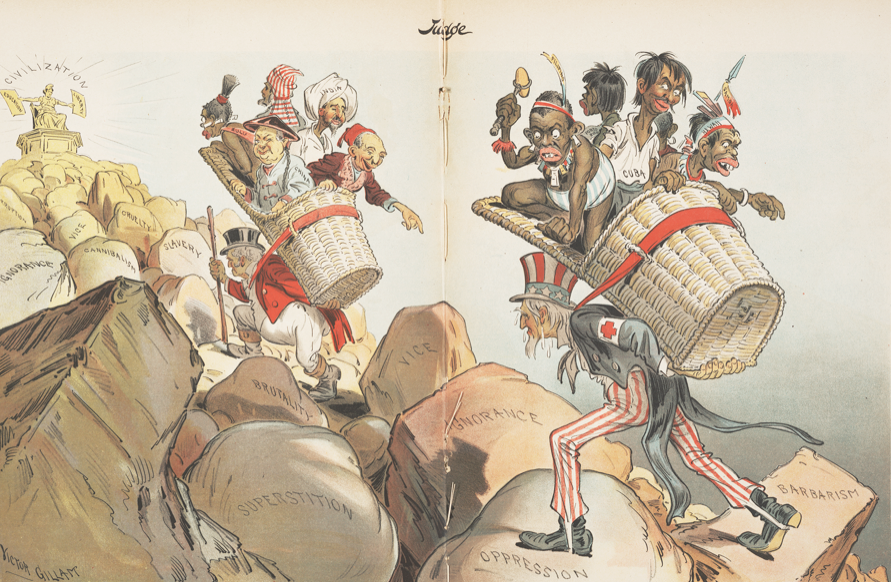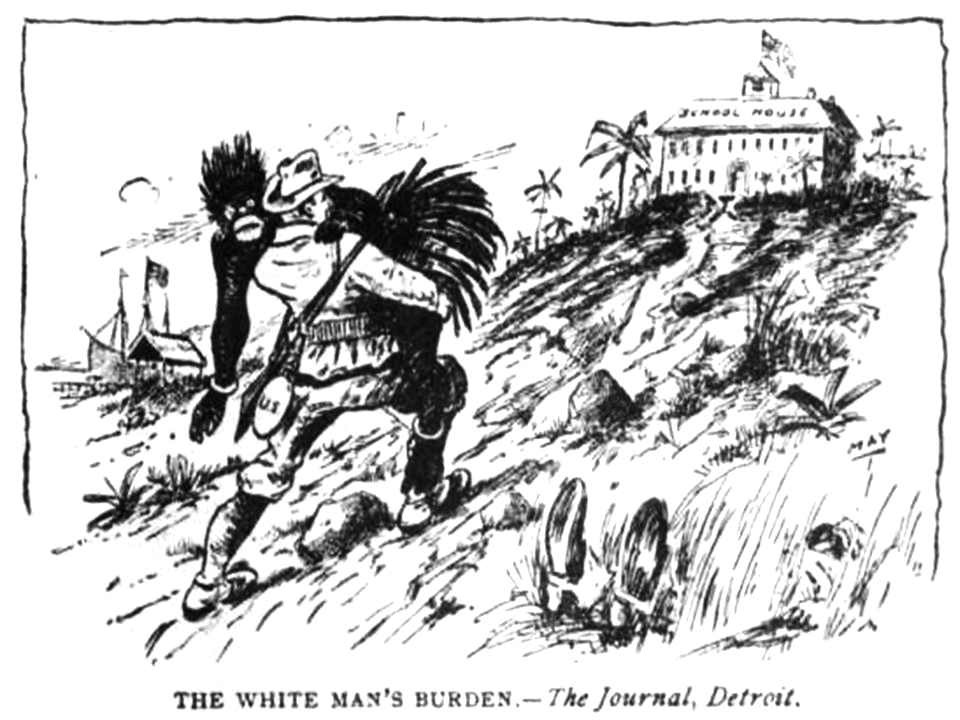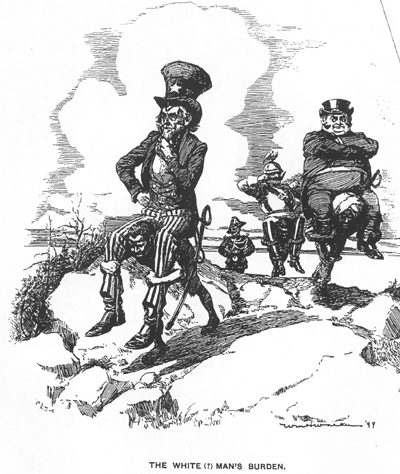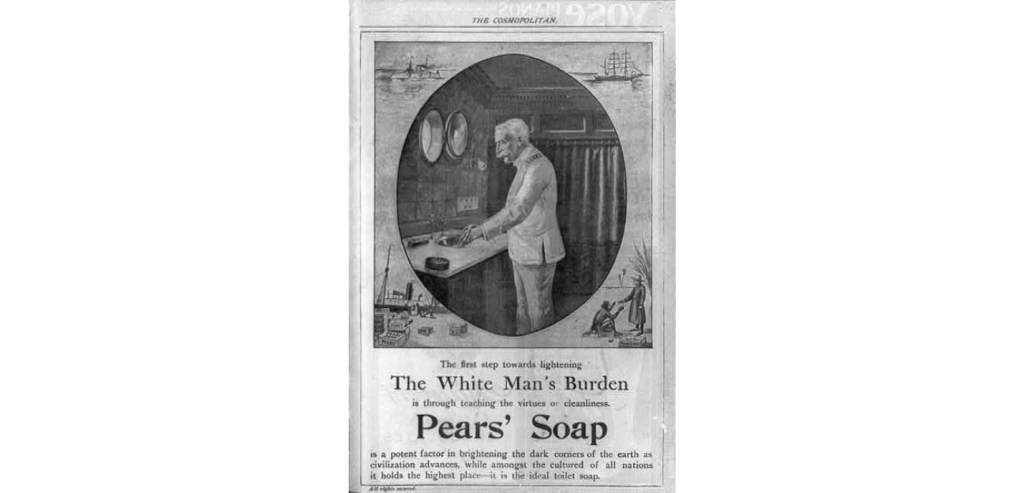Rudyard Kipling (1865-1889)
“The White Man’s Burden” (1899)
Reading Questions
Rudyard Kipling’s “White Man’s Burden”
- What exactly is the “burden” of the “White Man”? What does this poem presuppose about non-white people(s)? What does this poem demand of the “White Man”?
- Should we dismiss the poem as racist, jingoistic propaganda? If not, what purpose does it serve?
- How do the editorial cartoons and advertisements below contextualize Kipling’s poem?
“The White Man’s Burden” in Editorial Cartoons

The editorial cartoon “‘The White Man’s Burden’ (Apologies to Rudyard Kipling)” shows John Bull (Britain) and Uncle Sam (U.S.) delivering the world’s people of colour to civilisation (Victor Gillam, Judge magazine, 1 April 1899). The people in the basket carried by Uncle Sam are labelled Cuba, Hawaii, Samoa, ‘Porto Rico’, and the Philippines, while the people in the basket carried by John Bull are labelled Zulu, China, India, ‘Soudan’, and Egypt.



Take up the White Man's burden -
Send forth the best ye breed -
Go bind your sons to exile
To serve your captives' need;
To wait in heavy harness
On fluttered folk and wild -
Your new-caught sullen peoples,
Half devil and half child.
Take up the White Man's burden -
In patience to abide 10
To veil the threat of terror
And check the show of pride;
By open speech and simple,
An hundred times made plain,
To seek another's profit,
And work another's gain.
Take up the White Man's burden -
The savage wars of peace -
Fill full the mouth of famine
And bid the sickness cease; 20
And when your goal is nearest
The end for others sought,
Watch Sloth and heathen Folly
Bring all your hopes to nought.
Take up the White Man's burden -
No tawdry rule of kings,
But toil of serf and sweeper -
The tale of common things.
The ports ye shall not enter,
The roads ye shall not tread, 30
Go make them with your living,
And mark them with your dead !
Take up the White Man's burden -
And reap his old reward,
The blame of those ye better,
The hate of those ye guard -
The cry of hosts ye humour
(Ah slowly !) towards the light:-
"Why brought ye us from bondage,
"Our loved Egyptian night ?" 40
Take up the White Man's burden -
Ye dare not stoop to less -
Nor call too loud on Freedom
To cloak your weariness;
By all ye cry or whisper,
By all ye leave or do,
The silent sullen peoples
Shall weigh your Gods and you.
Take up the White Man's burden -
Have done with childish days - 50
The lightly proffered laurel,
The easy, ungrudged praise.
Comes now, to search your manhood
Through all the thankless years,
Cold-edged with dear-bought wisdom,
The judgement of your peers.

